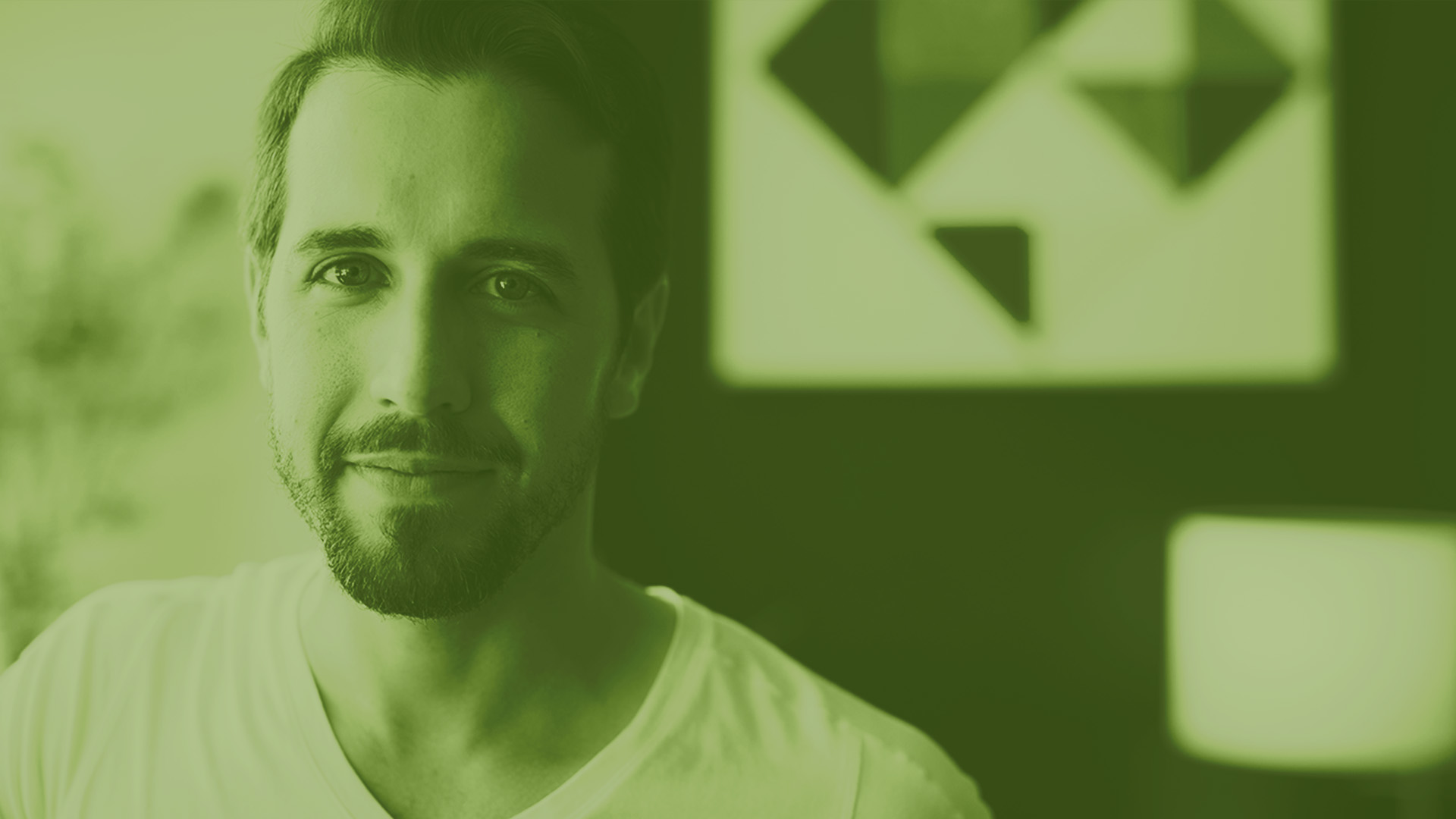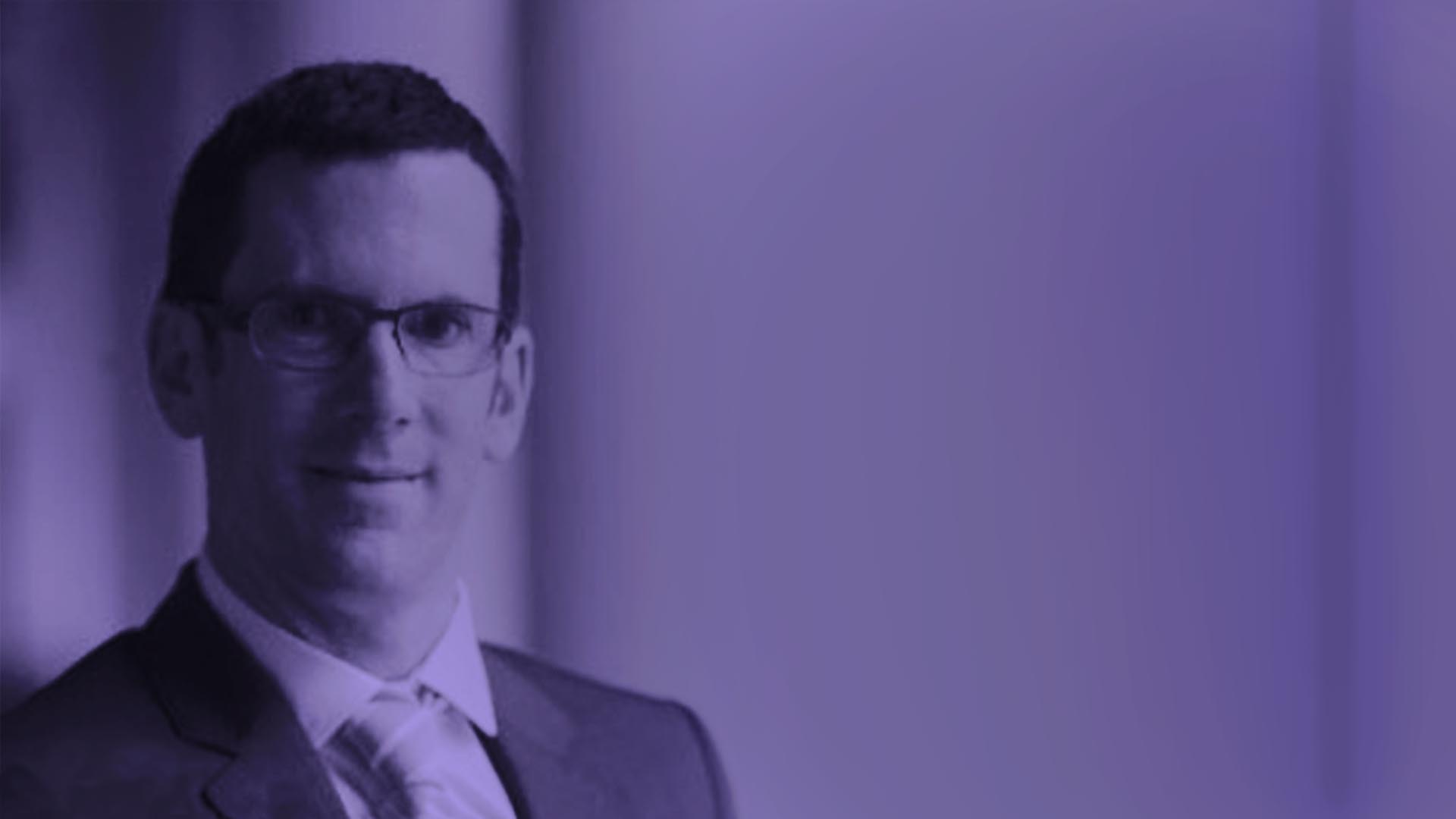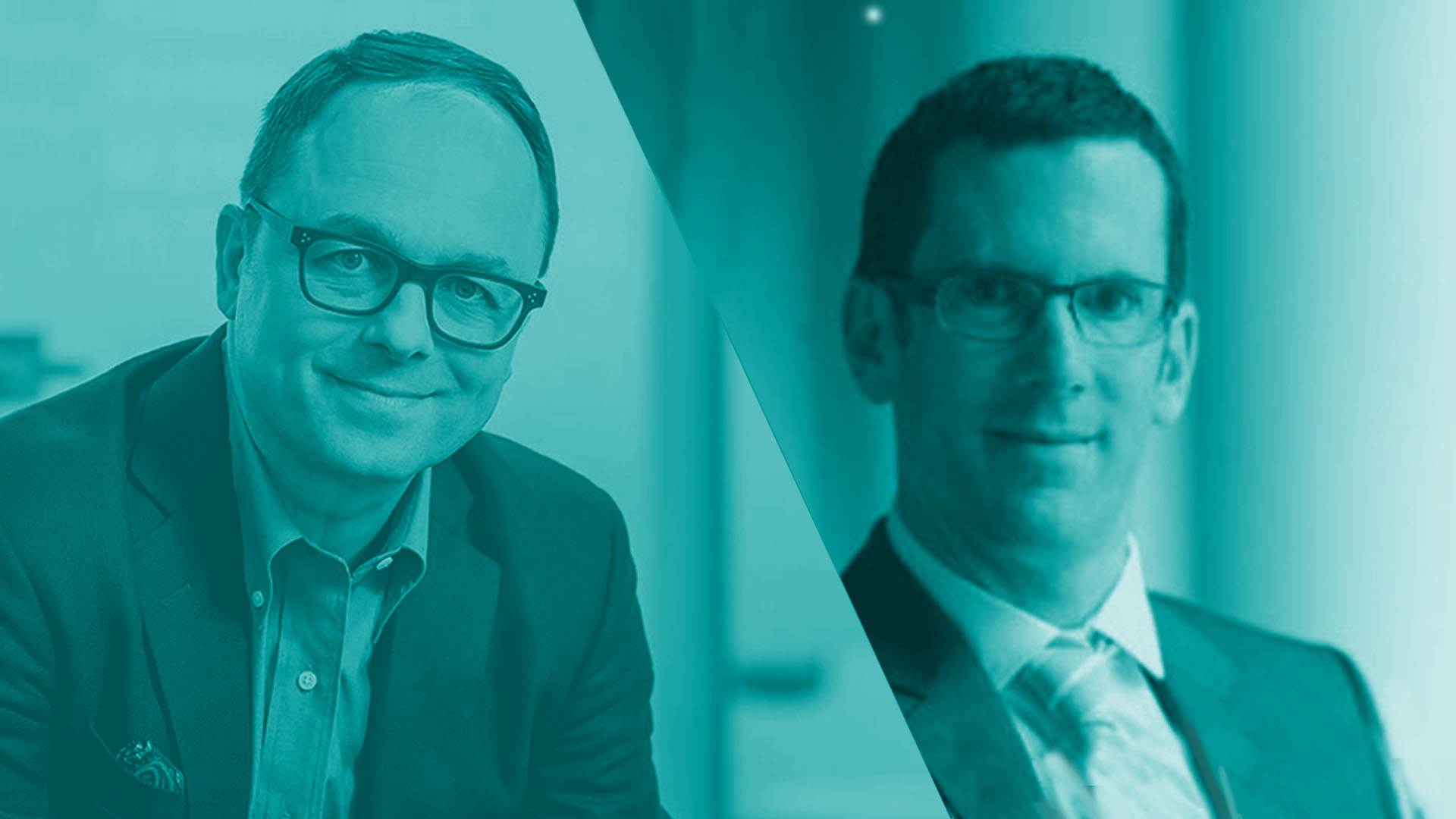Lately, the teams at Nexus have been supporting clients with their mental wellness programs. A lot of that work involves helping people talk openly about their struggles with mental health. You’d be amazed at how many people have told us that having a colleague who’s willing to listen has made those struggles easier, just as having a person who’s judgmental or unprepared to listen has made them worse.
Which begs the question…while it’s important to help people share their stories, isn’t it just as important to help people listen? If having a colleague in your corner can mean the difference between life and death when dealing with mental health, shouldn’t we be doing more to give those “listeners” the skills and the permission to support their co-workers?
Those are just two of the questions we put to Mark Henick, best-selling author, speaker, and prominent mental health advocate.
Transcript:
Chris Nelson [00:00:02] Over the last few months, our teams here at Nexus have been helping clients relaunch their mental wellness programs. I use the word relaunch because a lot of these companies had supports already in place, but during the pandemic they were seeing something strange. Leaders knew, both intuitively and from personal experience, that people were struggling. Mental health issues were being dragged into the sunlight by a global health crisis, and yet people weren’t accessing these programs, perhaps for fear of how it might look, especially in a moment when it felt like everyone was suffering. And one of the first steps in these launches is just getting people to tell stories about their mental health challenges, just to normalize the conversation to help people feel OK sharing. And one of the biggest things that struck us was not how many people were struggling with mental health and keeping it to themselves, but rather the reasons why they choose to share or not share. One person we spoke with talked about how she was ready to take her life, and would have gone through with it had her manager not noticed her struggles and taken a personal interest in what she was going through. Today, that person credits her manager with saving her life. Of course, there’s also flip sides to that story. One leader told us about visiting her family doctor to discuss the trauma they were experiencing as a result of childhood abuse, and how that doctor looked at her tight-knit family, her successful school career, and said, “I’m sorry, I treat people with real problems.” A doctor said that. As a result of that comment, that people leader kept their abuse a secret for over 30 years. As we listened to these stories it occurred to us that we’re doing so much to encourage people to share, but how much are we doing to help people listening? An open sharing culture is great, but isn’t it equally important to create a listening culture as well? That is the question we put to our guest on this pod. His name is Mark Henick- he’s a mental health advocate, a bestselling author, and former director of the Mental Health Commission of Canada. Mark has spoken about mental health all over the world on just about every platform imaginable. And now he joins us at the Nexus.
Chris Nelson [00:02:38] Mark, for a long time we tended to put up a wall between our personal and our professional lives, and perhaps pre-pandemic we were starting to take a few bricks out of that wall. It was the global health crisis itself that blew the wall up entirely. At least that’s how it feels. What do you think?
Mark Henick [00:03:02] You know, we’ve been banging the drum of mental health awareness pretty hard now for the last decade or so. And it’s been working- people are more aware. It’s borne out well in the data around millennials, Gen Z and younger, who are much more likely to speak openly about their mental health than prior generations. The problem, however, is that we haven’t really changed the system all that much in the last 10 years. People are willing and asking, demanding, in fact, for help. But they’re finding out that the system was never built properly to begin with, so that there often is nobody reaching back. It really does speak to the need to go deeper on these issues beyond just awareness into actually creating systems that help people.
Chris Nelson [00:03:49] You know, then perhaps maybe the pandemic didn’t suddenly make people more willing to speak about mental health so much as it made everyone- because everyone was struggling- it made everyone realize how ill equipped our systems were to support these kinds of conversations on this scale.
Mark Henick [00:04:08] Yeah Well, I mean, there’s two sides of that gap, right? There’s the side that people don’t know how to talk about their issues. So, often the ways in which they present as needing for help aren’t very obvious. Behavior is information and we present that information in a lot of different ways, but the helpers don’t know what to look for. So if you’re irritable, for example, this is a very common- especially among men, irritable and impatient very common symptom of depression. But that’s– when you bring that into the workplace, you’re going to get a certain reputation, you’re going to turn people off, you’re going to receive very unhelpful responses very often. So then how do helpers actually recognize, hey, maybe there’s something else going on here? It starts with building an organizational culture in which that’s the expectation walking through the door, that you assume the best in people, that you see others humanity, that you approach your work with vulnerability, with empathy, and that’s the standard. When it becomes problematic is when you say, here’s the signs to look for that somebody might be struggling, and here’s what you need to do to reach out. There’s reasons why people are presenting the way they are. There’s reasons why they don’t come up to you and say, “I have depression, can you help me?” Because they’re bringing their whole selves to that moment, and that whole self might include all kinds of trauma, all kinds of stigma, all kinds of experiences with reaching out to people who were not helpful. The need for the vulnerability and openness of the helper to not have all the answers really becomes important as well.
Chris Nelson [00:05:40] OK, so now you’re getting to the heart of our discussion, which is we’ve heard from lots of people who have told us that the timely intervention of a caring individual was critical to helping their mental health and conversely someone’s indifference or scorn set them back. It feels like those people, those listeners or helpers, if you will, need some kind of support. How do we do that?
Mark Henick [00:06:05] While a well motivated concern, how do you help people with mental illnesses? How do you help the mentally ill? If you want to learn how to help the mentally ill, look in the mirror. The mentally ill do not exist as a category separate from everybody else. If you want to know what you can do to help somebody else who is struggling, ask yourself what you need to not struggle. You need safety, security, you need love, community, connection, a good job with a fair wage that gives you purpose- you need all these things. The mentally ill are not a people separate from us who need something else. You cannot categorize people into narrow categories because that’s when we see people shut down. That’s why people don’t want to talk to you because you’ve already assumed who they are and what they are and what their symptoms are and what they need, you’ve locked in to fixer fixation. Instead, I think if we can train people to approach conversations in a more open-minded, open-hearted manner, not prescriptively asking open ended questions, not judging the people’s answers that they give to them, not over prescribing what they should do, don’t should all over them- this is the kind of training I think that we need to really implement in workplaces now
Chris Nelson [00:07:22] At an individual level, asking more questions feels easy. Be curious, not judgmental. But if you’re a person who is sitting there, you feel psychically and physically drained a little bit, where do you summon the energy?
Mark Henick [00:07:36] When I find myself in a situation in which I’ve worked 60 hours that week and I’m exhausted and can’t ask anybody else any questions, then I need to ask myself some questions. Why did I just work 60 hours a week? Why did I drain my tank so empty that I don’t have any empathy left for others? I think that’s a hard question. Sometimes that’s the hardest question that we need to ask ourselves, because that means then we need to put some boundaries around our own work. We have to take better care of ourselves. You have to put your own oxygen mask on before you can help anybody else. Self-care gets a bad rap, it gets seen as fluffy, but self-care is supposed to be hard work- you need to do the work on yourself, you need to be your best self, so that way you can help others. And that’s going to mean not always meeting all your commitments. It’s going to mean some hard choices, but I think it’s necessary, we have to.
Chris Nelson [00:08:25] I’m wondering if there is a communication style that people can embrace easily, or a company can embrace easily. Is there anything like that?
Mark Henick [00:08:34] Ask more questions. If you have a mental health problem, you probably don’t feel heard because all of society tells you to shut up every day. And then it’s a symptom of many of the illnesses themselves that you’re afraid, very often, to speak up, or you’re ashamed to speak up. So by a manager, a coworker, anybody, asking more questions authentically, honestly, with a real interest in knowing the answer, that on its own, I think, has the power to start shifting an organizational culture toward a more supportive one.
Chris Nelson [00:09:07] Do I have permission in a work context to ask those questions? And is that something that needs to happen on a personal level or at an organizational level?
Mark Henick [00:09:15] So I think it depends on the type of questions that you’re asking and what frame of mind you’re coming from. The types of conversations we’re talking about, you’re taking the lead from the other person anyway- you’re noticing something, that’s why you’re having the conversation after all. Whether it’s a gut feeling or something, some change from baseline that you’ve just noticed, there’s a reason why you’re checking in with somebody. You can tell in a heartbeat when that person has a whole lot of stuff going on, because their eyes will well up, they will shake, they will want to tell you, they’re just waiting for you to ask. People tell me all the time- and this comes up with suicide because it’s such an extreme example- I don’t want to ask because what if they say yes, that they are suicidal, then I don’t know what to do. My answer to that is you don’t need to know what to do because you’re not a doctor. What you need to be is in their corner. You need to be able to say, “wow, I really don’t know what to do, that’s scary, but I’m willing to help you find out.” And that is an incredibly powerful alliance that you have the opportunity to build with somebody.
Chris Nelson [00:10:18] What do you say to those people who, you know, see a situation, can sense intuitively that someone is suffering, but are reluctant to intervene or to reach out the way you’re describing for fear of making things worse?
Mark Henick [00:10:32] That’s very common. The fear of making things worse by intervening is one of the most common things. Not everybody is going to respond positively if you reach out- this is just a reality. I make a conscious effort of reminding myself that their stuff is not my stuff, that they’ve got other stuff going on. Their response in that moment and in every moment is informed by everything that they’ve already been through. They will remember that you did, though, and if you did it in good faith from an open, non-judgmental perspective, even if they don’t take you up on that offer right now, they will remember later. It adds one more coin into that bank of “safe person” information in that person’s mind. If I talk to somebody about suicide, if I ask them if they’re suicidal, what if they weren’t and it gives them the idea to go do it? That’s not a thing- I can tell you that this has been researched over and over and over again. One of the most effective protective factors for preventing suicide is to ask people directly, “are you thinking about killing yourself?” If you’re doing it in an open, non-judgmental way, the worst that can happen is nothing, but the best that can happen is that you could save that person’s life.
Chris Nelson [00:11:39] What can an organization do to change that culture to make that possible?
Mark Henick [00:11:42] Having a bit of educated awareness, knowing what’s available in your community, having active conversations, listening conversations, where you encourage people to open up- that’s the first step, the awareness step. The second step, though, is that awareness isn’t enough. Awareness is literally the least you should be doing, but that’s kind of your starting point. You need to act as well. That means bolstering resources, taking a look at your health benefits, your extended health, your EAP employee and family assistance program, if you’re offering it. You have to give people a sense that you’re not just talking a big game, that you’re walking the talk as well. And then looking at your organization more broadly- this would be the third step. You can get a sense of the current state of the psychological health and safety of your workforce, and you can make targeted interventions as necessary to change culture.
Chris Nelson [00:12:34] OK, good advice for organizations. Do you have any parting thoughts for people who are trying to support colleagues struggling with mental health issues?
Mark Henick [00:12:45] In order to help a helper, you have to really recognize and see what it is that they’re struggling with. We want to help, and sometimes we want to help so badly that we take on too much. So have these kinds of conversations with people who are helping others. Then make sure that if you yourself, a listener, are trying to help somebody else who’s dealing with a mental health struggle, practice what you preach- help your own mental health. If you’re burning yourself out to help somebody else burnout, that’s a bit of an oxymoron. Reach out to a therapist, access your benefits, take time off, unplug, do all the things that we tell everybody else to do- you have to do those things as a helper as well.
Chris Nelson [00:13:26] It almost sounds- and correct me if I’m wrong- Mark, that it’s like perhaps maybe it’s even helpful to eliminate the categories of helper and those being helped and just start thinking you yourself as a human.
Mark Henick [00:13:38] Couldn’t have put it better myself.
Chris Nelson [00:13:39] Well, on that note, we’re going to stop. Mark, thank you so much for making the time to chat with me. I do hope you’ll return again so we can discuss more subjects like this.
Mark Henick [00:13:52] Yeah, happy to.
Chris Nelson [00:13:54] If you’re listening to this podcast and you’re struggling with mental health, please seek help. It’s not an admission of weakness, quite the opposite, it’s brave. And don’t prejudge people’s willingness to listen. And if you’re someone who suspects their colleague is struggling with mental health, take Mark’s advice and don’t hesitate to reach out. Your curiosity and lack of judgment could literally save someone’s life. And if you lead a company that wants to build both a sharing and a listening culture, Nexus has your back. We’re doing this right now for several clients, it’s some of the most important work that we’re doing, and it would be our privilege to do it for you as well. The Nexus is produced by Alexa Pavao and Murtz Jaffer with editing and sound design by Justin Moy. I’m Chris Nelson. Take care, and thanks for listening.








